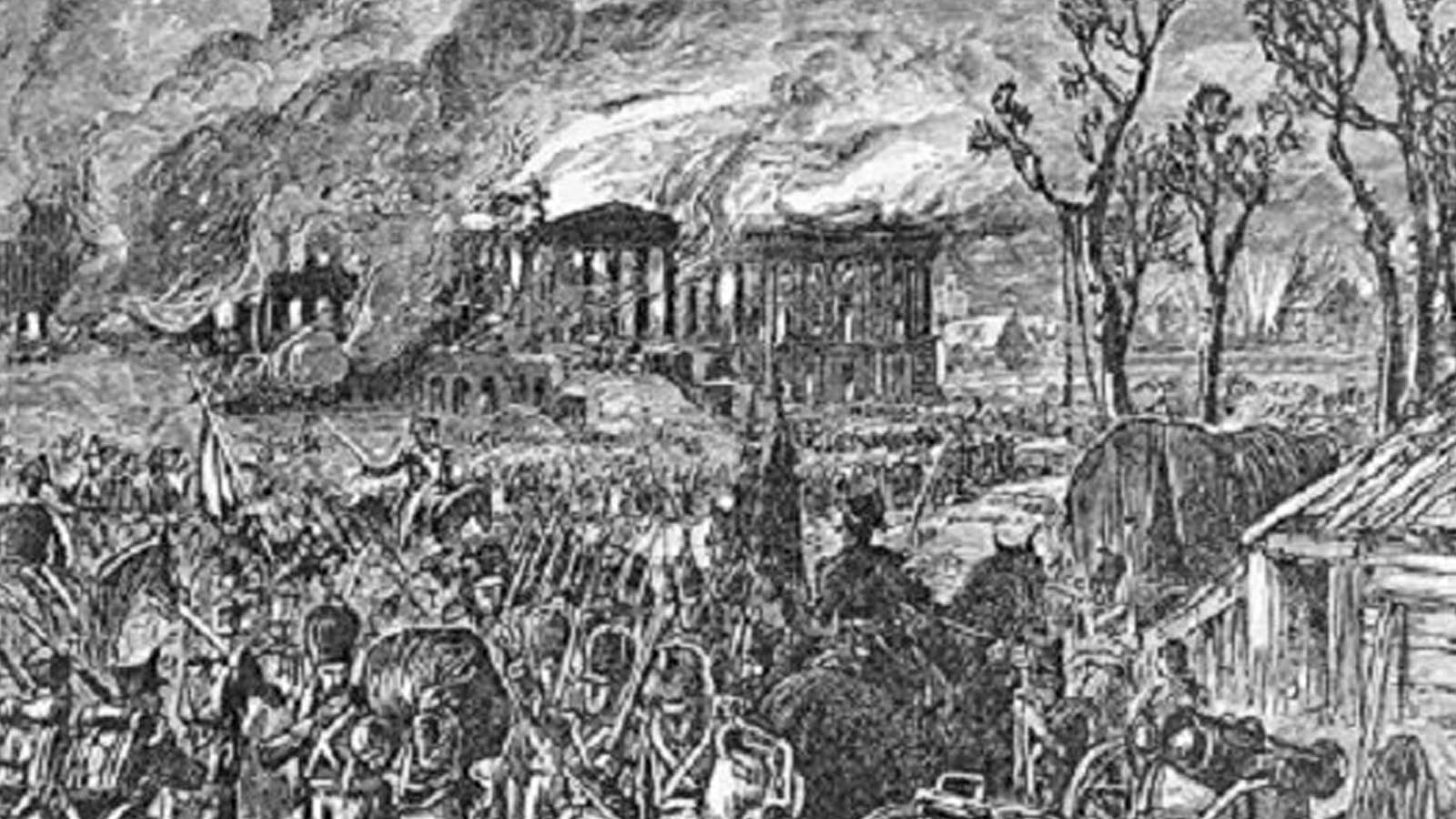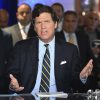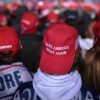The United States capital of Washington, D.C., burned on this day in 1814, but it may have been an act of nature that forced the British from the besieged city.
The story of the brief British occupation of an undefended Washington, D.C. is well-known. During the War of 1812, the British were urged to attack the former colonies after American troops attacked Canada and burned government buildings. Washington was picked as the target because of its symbolic importance, its easy access from the sea, and the inability of inexperienced American troops to defend it. President James Madison and his wife, Dolley, were aware of the threat, and they made prearranged plans to escape the city if the British attacked.
On August 24, 1814, troops from both armies met outside of Washington, and the British Army easily defeated a volunteer American force at the battle of Bladensburg. President Madison and Secretary of State James Monroe were nearly captured. As the British troops moved onward, Dolley Madison gathered belongings, including her silver, from the White House.
The British troops set fire to the Capitol, the White House (then called the Presidential Mansion,) the Library of Congress, and other government buildings that day, (but not before taking the time to finish off a meal that had been left out at the White House.)
The next morning, the British invaders sought out ammunition and other supplies to burn. But, after an accident with gunpowder barrels led to the death of 30 British soldiers, the British decided to leave Washington.
Then came a fortuitous act of nature: a massive storm swept through the burning city. There is anecdotal evidence of a tornado, which touched down in the middle of the city on August 25, 1814, from the National Weather Service.
George Robert Gleig, a British soldier on the scene, detailed the scene in his memoirs as the severe thunderstorm rolled into the city in the afternoon.
“Of the prodigious force of the wind it is impossible for you to form any conception. Roofs of houses were torn off by it, and whisked into the air like sheets of paper, while the rain which accompanied it resembled the rushing of a mighty cataract rather than the dropping of a shower,” Gleig wrote. He said the incident produced “the most appalling effect I had ever, or probably shall ever witness.”
The severe weather lasted for two hours, he said, dumping torrential rain on the city. At least two British troops were killed, and Gleig was knocked off his horse. He also said two cannons were picked up in the air and tossed around during the most violent part of the storm.
Gleig recalled that as the rains doused the fires set by the British, they were able to use the confusion caused by the storm to cover their quick withdrawal from Washington that night.
In the storm’s aftermath and subsequent British departure, Madison and the American forces returned to Washington to examine the destruction. The White House and Capitol were rebuilt, and Thomas Jefferson donated his book collection to restock the Library of Congress.
On September 1, Madison said in a proclamation that the attack showed “a deliberate disregard of the principles of humanity and the rules of civilized warfare, and which must give to the existing war a character of extended devastation and barbarism.” He also noted that the invasion happened at the same time the British invited the Americans to start peace talks.
Two weeks later, the British failed to invade Baltimore in a similar attack that is best remembered today for its connection to the nation’s anthem, “The Star-Spangled Banner.” Major General Robert Ross, who led the British attack on Washington, was killed by American snipers in Baltimore as the battle began.














It is worth noting that the one group of Federal Buildings that were purposefully NOT torched that day was the Marine Barracks complex at 8th and I Streets in DC. Out of respect for the gallantry and courage of the United States Marines, the British troops, which included a large contingent of Royal Marines, spared the Barracks and the quarters of the Commandant of the Marine Corps, which is also located at the Barracks.
It is appropriate for me to believe that since the US was divinely assisted in its inception, it’s capital was divinely protected in 1814 by the storm. The US military at that time was apparently ill prepared to defend against such superior forces, just as it was during the revolution. The Creator spared the fledgling nation and has allowed it to prosper for His own reasons. Israel plays no small role in the reason for our survival from tyranny over the past couple hundred years. Since our current administration does not bless Israel, God will keep His promise to curse our nation. Laugh if you will, but I have told the truth.